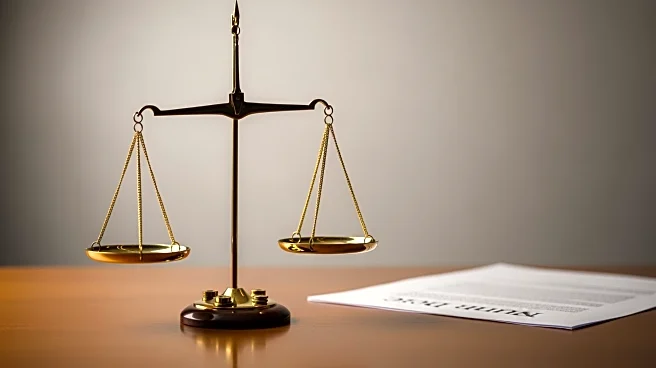What's Happening?
On October 9, 2025, Wendy Osefo, a cast member of Bravo's reality TV series, was arrested on felony fraud charges. The charges include allegations of a staged burglary and false insurance claims. This development has led to a scheduled court appearance
on November 7, 2025, which could impact upcoming broadcasts and sponsorships related to the show. The arrest has prompted Bravo to reschedule an episode to November 9, as advertisers and sponsors reassess their placements. The situation highlights the increasing accountability measures networks are adopting in response to controversies involving reality TV stars.
Why It's Important?
The arrest of Wendy Osefo is significant as it underscores the growing scrutiny and accountability in the reality TV industry. Networks like Bravo are facing pressure to manage the reputational risks associated with their cast members' legal issues. This incident may lead to stricter vetting processes and contractual clauses that address criminal conduct. Advertisers and sponsors are also affected, as they must decide whether to continue their associations with shows embroiled in legal controversies. The outcome of this case could influence how reality TV networks handle similar situations in the future, potentially reshaping industry standards.
What's Next?
The upcoming court date on November 7, 2025, will be crucial in determining the legal consequences for Wendy Osefo and her husband. Depending on the outcome, Bravo may need to make further adjustments to its programming and promotional strategies. Industry insiders and fans are closely watching the case, which could lead to changes in how reality TV contracts are structured, with more emphasis on morality and conduct clauses. The network's response and the legal proceedings will likely influence public perception and the business model of reality TV.
Beyond the Headlines
This case highlights the ethical and legal challenges faced by reality TV networks in managing their talent. The incident raises questions about the responsibility of networks to ensure the integrity of their programming and the conduct of their cast members. It also reflects broader societal concerns about the impact of reality TV on public perceptions and the potential for legal issues to affect entertainment content. As networks navigate these challenges, they may need to balance the demand for drama with the need for ethical standards and accountability.















